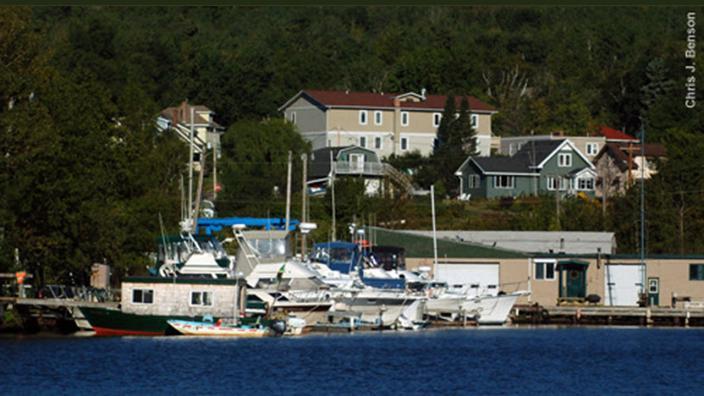Meet Duluth, one of America’s best adventure towns.
As the infrastructure for outdoor recreation continues to grow, Minnesotans and other coastal communities looking for planning strategies that support economic, environmental and social well-being have a new tool. An intensive and interactive new course that teaches participants practical skills they can use.
“Coastal communities everywhere increasingly realize the need for sustainable recreational planning strategies, but many aren’t sure where to start,” said Thomas Beery, Minnesota Sea Grant resilience specialist and course facilitator.
Adaptation Planning for Coastal Communities: A Special Edition for Recreational Professionals in Port Communities will be Oct. 25-26, 2017 at Great Lakes Aquarium, 353 Harbor Drive, Duluth. The course is sponsored by Minnesota Sea Grant and the National Oceanic and Atmospheric Administration. Space is limited, the course fee is $40 and registration is required.
While the course emphasis is on outdoor recreation planning, which makes it especially relevant to the Twin Ports, it is also designed for planners, public works staff, floodplain managers, hazard mitigation planners, sustainability managers, emergency managers, community groups, members of civic organizations and coastal resource managers.
“Adaptation planning strategies aim to increase community resilience to extreme weather and changing climate,” said Beery. “This kind of planning is a framework for managing future climate risk and offers Minnesotans the potential to reduce future economic, environmental and social costs.”
The course will show participants the basic elements of an adaptation planning framework that they can use to organize future preparedness efforts. Participants will also identify, compare and prioritize locally relevant adaptation strategies and actions.
Experts from the University of Minnesota, Minnesota State Climate Office, Minnesota Department of Health, Duluth Parks and Recreation, Minnesota Land Trust and others will present a variety of case studies.
“Our hope is to build on the interest in climate action and the adaptation efforts already underway,” said Beery. “This course will be hands-on and participants will have time to practice applying what they’ve learned.”
Continuing education credits have been applied for through the American Planning Association and the Association of State Floodplain Managers.
